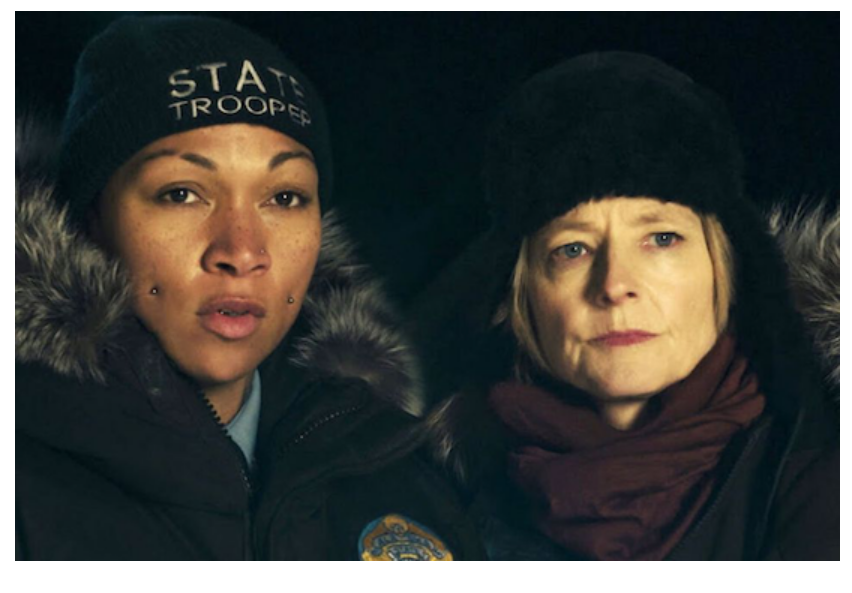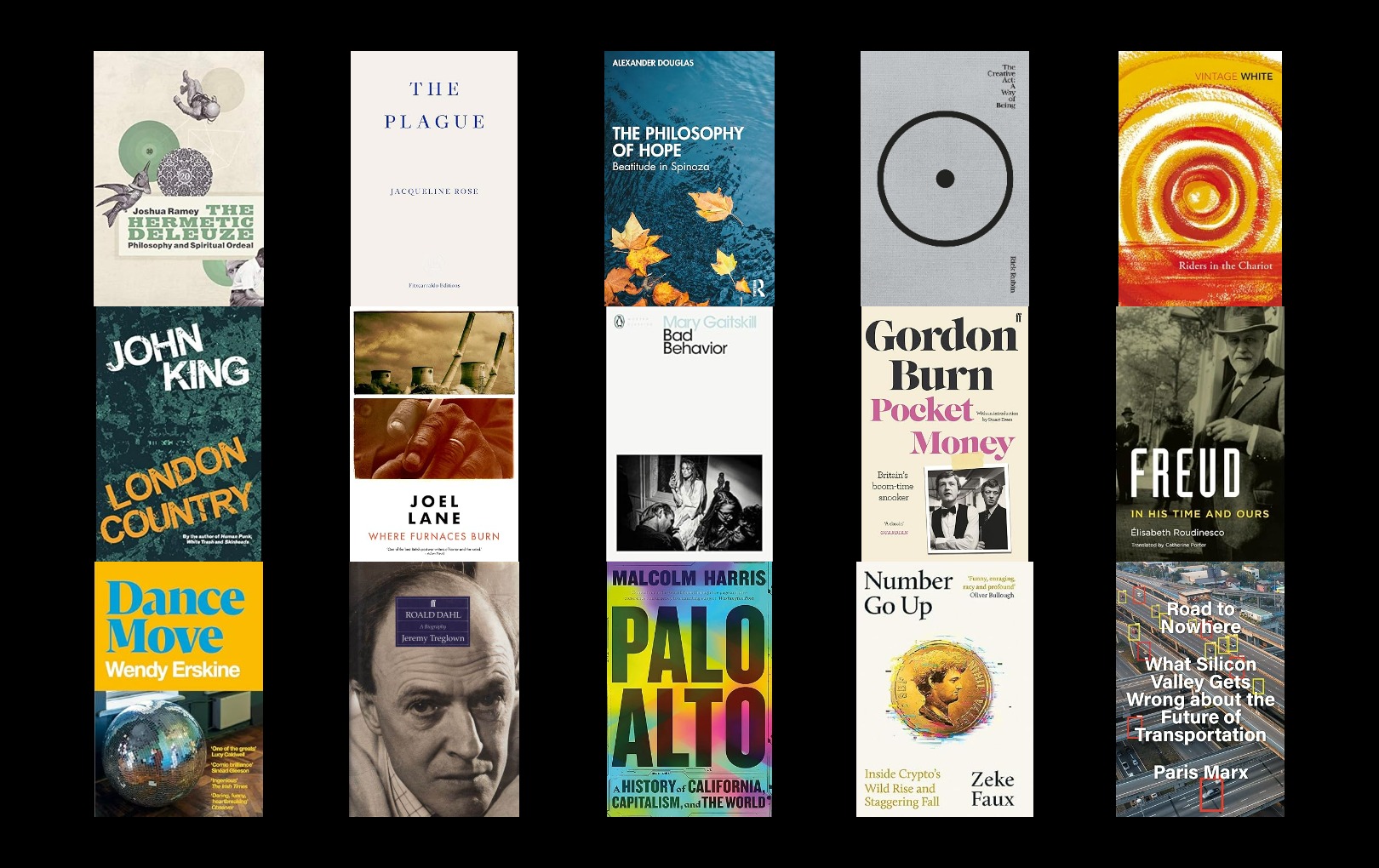
Eugene Thacker’s ‘True Detective’ Playlist
To accompany his latest piece with Tariq Goddard in The Quietus on True Detective Season 4 and the legacy of In The Dust of This Planet, Eugene
If the measure of writing is to get as close as we can to the truth of existence, I know
I will never write a better book than How Black was my Valley. It seems a little
peculiar to say this a day before I enter the 50th year of my life. Yet this much I know
to be true. And I am completely comfortable with the proposition.
But how can I be so at peace with the thought my existence as a writer may have
already “peaked”? How Black was my Valley is a book about mountains. It has its
highs and lows. But unlike other tales of journeys into places marked by history’s
expanse, its less about the summit than the depths. Still, I did have to conquer a
particular mountain when writing the book – the mountain of my mind. Yet this is
where things ended up getting disorientating, for I had a map, yet I was still in search
of a lost and forgotten territory. Besides, it is much easier to prepare yourself to scale
the heights in search of an elevated vantage point, than to allow oneself to freefall to
a bottom whose distance is yet to be cartographically mapped.
Who knows where the body will eventually land? And where is the glory in the
heathered tumble that only leaves burns and scars? There is no flag to pitch for all to
look up to with envy and pride. Instead the body returns out of the delirium of a
descent, which at least leaves you marked by the rolling hills of one’s birth, which
were always just there waiting for you to arrive back home.
A brilliant artist once told me they know the work is right if it feels like it was always
there, just simply waiting to be revealed or uncovered by a telling hand who allows
the composition to finally see the world. What does the painting see, she asked? For
it knows how it has always looked. That is its truth. I have felt the same writing this
book. What will it see as it narrates a history of those living beneath? Maybe it will
say that what I merely produced were words on pages that speak to stories told in
my mind a thousand times and which I refused to consign to the darkness? Once
committed, the book largely wrote itself or at least that’s how it felt as my doubting
words now look back at me with an assurance that was never in doubt. They are
there. Perhaps they always were. Could it be that we are just ghost-writers after-all?
When I return today to the books I authored in the past, I feel a strange detachment
as if they were written by somebody else. That could explain why I have never taken
criticism of my work personally. It was never really me. Who cares if you don’t relate
to my reading of somebody on the meaning of something? How I have grown so
weary of academics who exist for their own academicism. Talking to themselves in
privileged circles about the meaning of privilege and all its pains. This book is
however different. It is personal. And it is haunted by so many apparitions who still
speak to me out of the nocturnal blackness that blankets the towns of South Wales.
Honestly speaking, I am not really sure what can be criticised anyway? My journey?
My experience? My life? My destitution? My escape? My return? My black valley?
Everything I said is true and everything invented just a memory. Some may see it as
too pessimistic and dwelling within the bleakness of time. Others not dogmatic
enough for their pious minds. I don’t think its pessimistic at all. It’s just black.
Wherein there is a solitary glimmer that refuses to grace a total abandonment.
I have by now committed over a million words to printed paper, which are often
dormant on stowaway shelves, waiting in time for a prancing eye to catch a glance
and consider the order of their appearance. I wouldn’t mind if every single one of
those words were sealed tight into a container and never looked upon again, for in
truth they have already been looked upon far more than I ever imagined. Nothing
they say matters, when here and now crumbles and falls. Written to fade away. They
can be placed into the vault for the permanently unread, which all of our writing will
be eventually condemned, sooner rather than later. But I do hope this one stays
around for a while, so the rains may fall upon it and the seasons take their toll.
I don’t know if this book is any good, or if it’s good for anything? That is for others to
decide. A believer in fables, I however wish the words on the page could be
somehow liberated and fly back to peoples in the valleys to simply provide some
comfort as the cold night makes its eternal return. If it resonates there, then it will
resonate everywhere people are facing hardship.
Some may read this and say it all sounds a bit too pretentious. Whoever wrote
anything of meaning without allowing the ego to go a little unchecked? I certainly
wouldn’t occupy the whatever space I find myself located in today – a site of
remarkable privilege that’s occupied by every single academic I know – if I hadn’t
possessed pretentions for a better life. Yet perhaps that is also the problem. Why the
perpetual desire for flight from lands whose roots have been severed? And what
does it mean to speak of the better anyway, by whose values, measures, and
estimations?
So that we can look back and judge? So that we can return like some triumphant all
knowing saviour? So that we can show others how to escape? Or maybe so that we
can learn to find ourselves once again? And in that process, learn to question what
we have also lost through the passage of enrichment?
This book owes so much to so many it is impossible to name them all. I have tried to
find inspiration in the forgotten and learn to think anew in the company of those who
have not walked away from the abyss. Literary scholars will no doubt identify a
number of notable influences. None more so than Dante Alighieri, whose Divine
Comedy I find myself continually seeking. Beginning in a wilderness of doubt, Dante
knew we needed to confront the intolerable. A journey that was only possible by
going deeper into the darkness, and one which required a guiding poetic voice. What
returns is not just a witnessing to history; it’s a new verse for a people.
With the imminent arrival of this book, I feel a part of me has been released as a part
of me has been allowed to die. It took me to arrive at this moment in my life to finally
have the courage to walk back down into a valley, which I thought I had escaped by
climbing to a higher vantage point and looking upon a different horizon. I know the
book is loaded with that personal symbolism. It is also marked by others, including
the 100th anniversary of the first signs of the great depression in the valleys of South
Wales and the 40th anniversary of the miners’ strike that are commemorated in this
coming month.
So on this St David’s day – the day before I will walk out and breathe the air for the
18250th day of my existence, I have become acutely aware I am now more towards
the end. My life as such from here on in will be marked more by its subtractions than
its gains. So if my journey away from the valley sought to add things to the
spreadsheet of my life, as I learn to climb once again from the depth of the black
valley, my life will undoubtedly be shaped by what’s slowly taken away.
I have no fear in walking this inevitable path, for I know as long as I have love in my
life and find reasons to believe in the blackness, there will also be a poetic fire that
rages against the dying of its light.
Brad Evans

To accompany his latest piece with Tariq Goddard in The Quietus on True Detective Season 4 and the legacy of In The Dust of This Planet, Eugene

As another turbulent year draws to a close, the Repeater team put forward their favourite reads for the festive season. Publisher, Editor, and Author Tariq

To accompany the ground-breaking new book I Could Be So Good For You: A Portrait of the North London Working Class, by John Medhurst, Repeater

To accompany his latest piece with Tariq Goddard in The Quietus on True Detective Season 4 and the legacy of In The Dust of This Planet, Eugene

As another turbulent year draws to a close, the Repeater team put forward their favourite reads for the festive season. Publisher, Editor, and Author Tariq

To accompany the ground-breaking new book I Could Be So Good For You: A Portrait of the North London Working Class, by John Medhurst, Repeater
